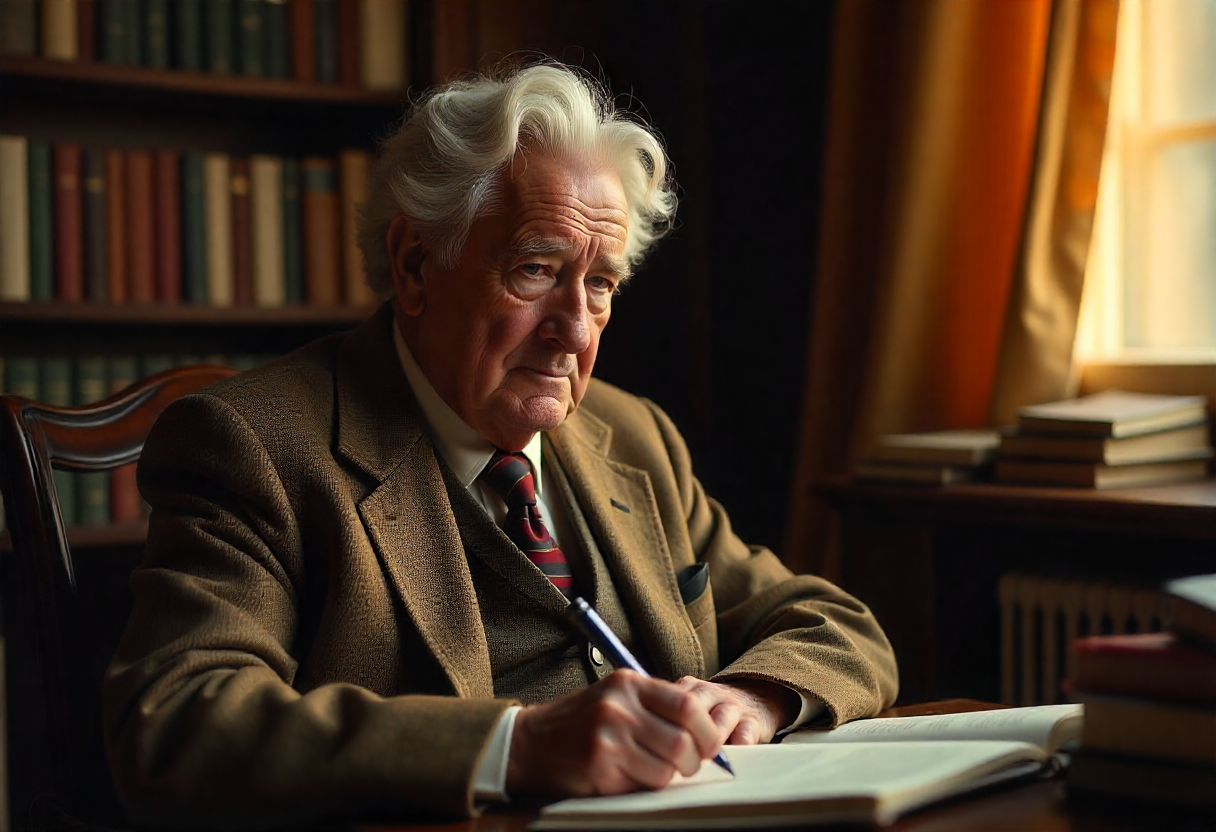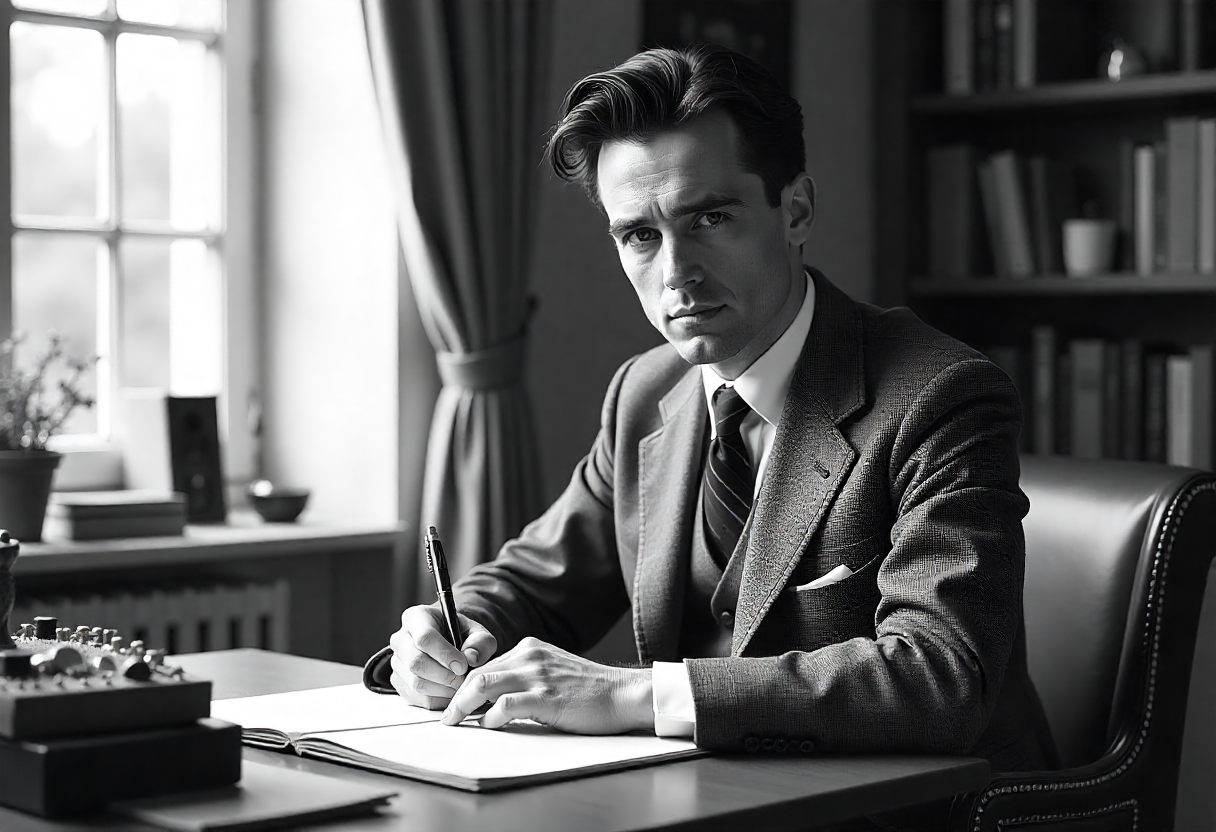George Orwell (1903-1950), born Eric Arthur Blair, was one of the most influential writers of the 20th century. His works *1984* and Animal Farm have become defining texts of dystopian fiction and political satire, warning against totalitarianism, propaganda, and the erosion of truth. A former colonial policeman, soldier, and socialist, Orwell's life experiences shaped his sharp critiques of power and his enduring defense of democratic socialism. This biography explores his remarkable journey, literary achievements, and lasting impact on modern thought.
Early Life and Education
Born on June 25, 1903, in Motihari, British India, Orwell was the son of a British civil servant in the Indian Imperial Police. His family returned to England when he was one, settling in Henley-on-Thames.
Orwell attended St. Cyprian's preparatory school, where he experienced the harshness of the British class system—later recounted in his essay "Such, Such Were the Joys." He won a scholarship to Eton College (1917-1921) but chose not to attend university, instead joining the Indian Imperial Police in Burma (1922-1927)—an experience that turned him against imperialism.
Early Writing and Political Awakening
Disillusioned with colonialism, Orwell resigned and returned to Europe, living in poverty in London and Paris—chronicled in Down and Out in Paris and London (1933), his first major work, published under the pseudonym "George Orwell."
His early novels, including Burmese Days (1934) and Keep the Aspidistra Flying (1936), criticized imperialism and capitalism. But it was the Spanish Civil War (1936-1937) that radicalized him politically.
Fighting Fascism in Spain
Orwell joined the POUM (Workers' Party of Marxist Unification) militia to fight Franco’s fascists. He was shot in the throat and later fled Spain after Soviet-backed communists suppressed anarchist and socialist factions—an experience that cemented his distrust of Stalinism, documented in Homage to Catalonia (1938).
Literary Masterpieces: Animal Farm and *1984*
After WWII, Orwell produced his two most famous works, blending political insight with literary brilliance.
1. Animal Farm (1945)
- A satirical allegory of the Russian Revolution, where farm animals overthrow humans, only to see the pigs become tyrannical rulers.
- The famous maxim: "All animals are equal, but some animals are more equal than others."
- Exposed the betrayal of socialist ideals under Stalinism.
2. Nineteen Eighty-Four (1949)
- A dystopian nightmare of a totalitarian state where Big Brother surveils every citizen, history is rewritten, and language is controlled via Newspeak.
- Introduced concepts like:
- "War is peace. Freedom is slavery. Ignorance is strength."
- "Thoughtcrime" and "Doublethink"
- A chilling warning about government surveillance, propaganda, and the death of truth.
Personal Life and Struggles
Orwell married Eileen O’Shaughnessy in 1936, but she died tragically in 1945 during a hysterectomy. He later adopted a son, Richard, and married Sonia Brownell shortly before his death.
A lifelong socialist, Orwell was also fiercely anti-totalitarian, criticizing both fascism and Stalinism. He worked for the BBC during WWII but resigned, disillusioned with propaganda.
Despite fame, he lived frugally, battling tuberculosis (TB) for years. He died on January 21, 1950, at 46, just months after *1984* was published.
Political and Literary Legacy
Orwell’s influence extends far beyond literature:
1. Language and Thought
- Terms like "Orwellian," "Big Brother," and "Thought Police" are now part of global discourse.
- His essays ("Politics and the English Language," "Shooting an Elephant") remain essential critiques of power and language.
2. Impact on Modern Politics
- *1984* is frequently referenced in debates on surveillance (NSA, China’s Social Credit System).
- Animal Farm is taught worldwide as a primer on authoritarianism and propaganda.
3. Cultural Influence
- Adapted into films, TV series, and even a reality TV show (Big Brother).
- Cited by activists, journalists, and whistleblowers like Edward Snowden.
As Christopher Hitchens wrote:
"Orwell’s plain style was a moral statement as much as an aesthetic one."
Conclusion
George Orwell was more than a novelist—he was a moral compass for the modern age. His warnings about tyranny, censorship, and the manipulation of truth grow more urgent with time. Whether through the fable of Animal Farm or the horror of *1984*, Orwell’s work remains a beacon of intellectual honesty in an era of misinformation. His legacy endures not just in literature, but in the ongoing struggle for freedom, justice, and the truth.
Lit2Talks is on a mission to make knowledge free for everyone. Publish, read, and download books at Lit2Talks.










